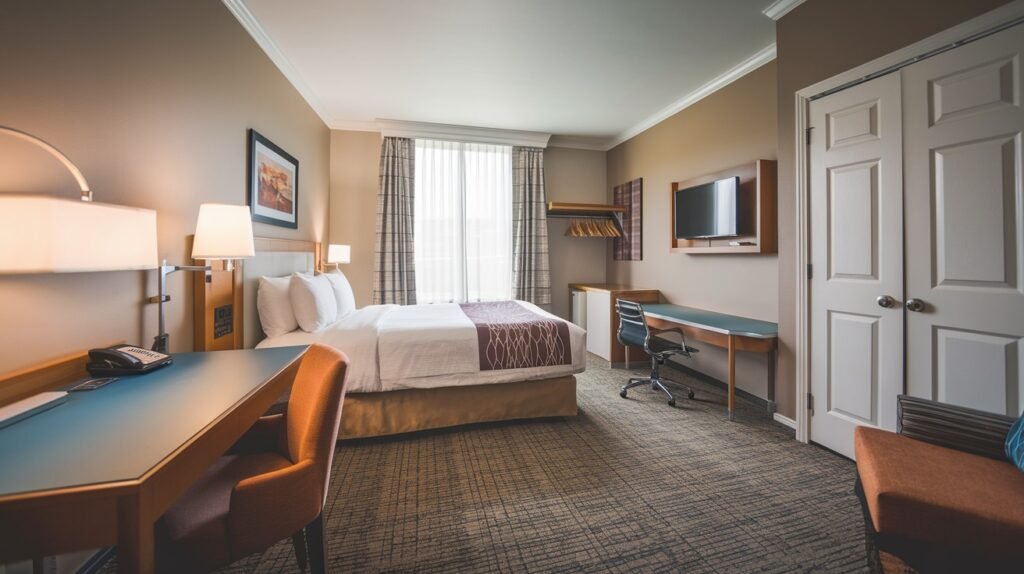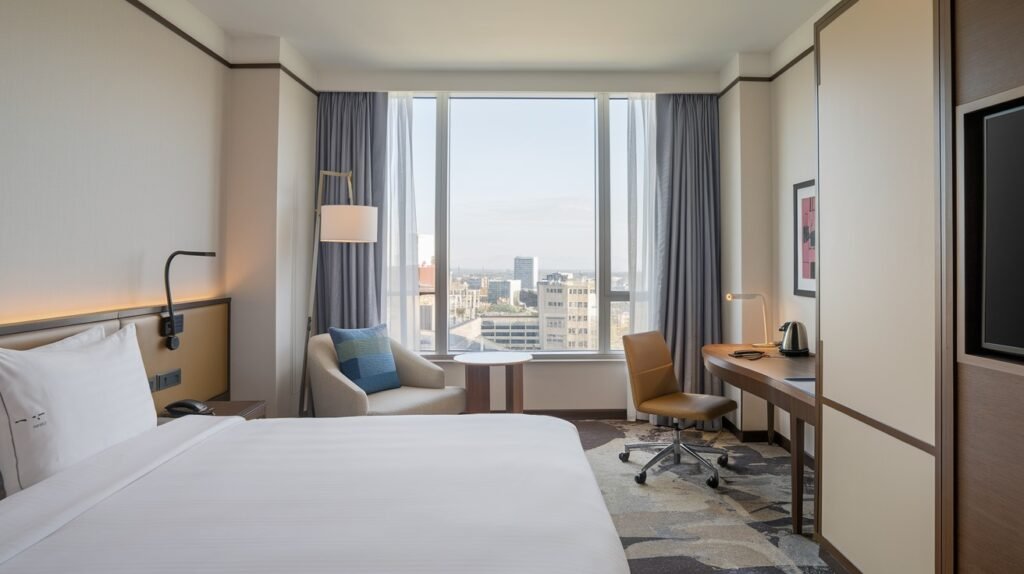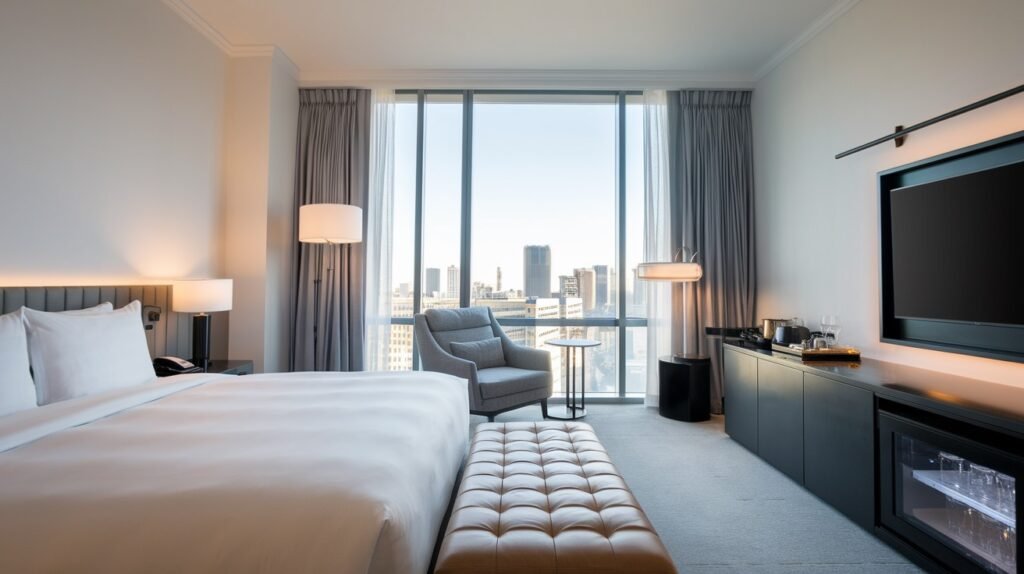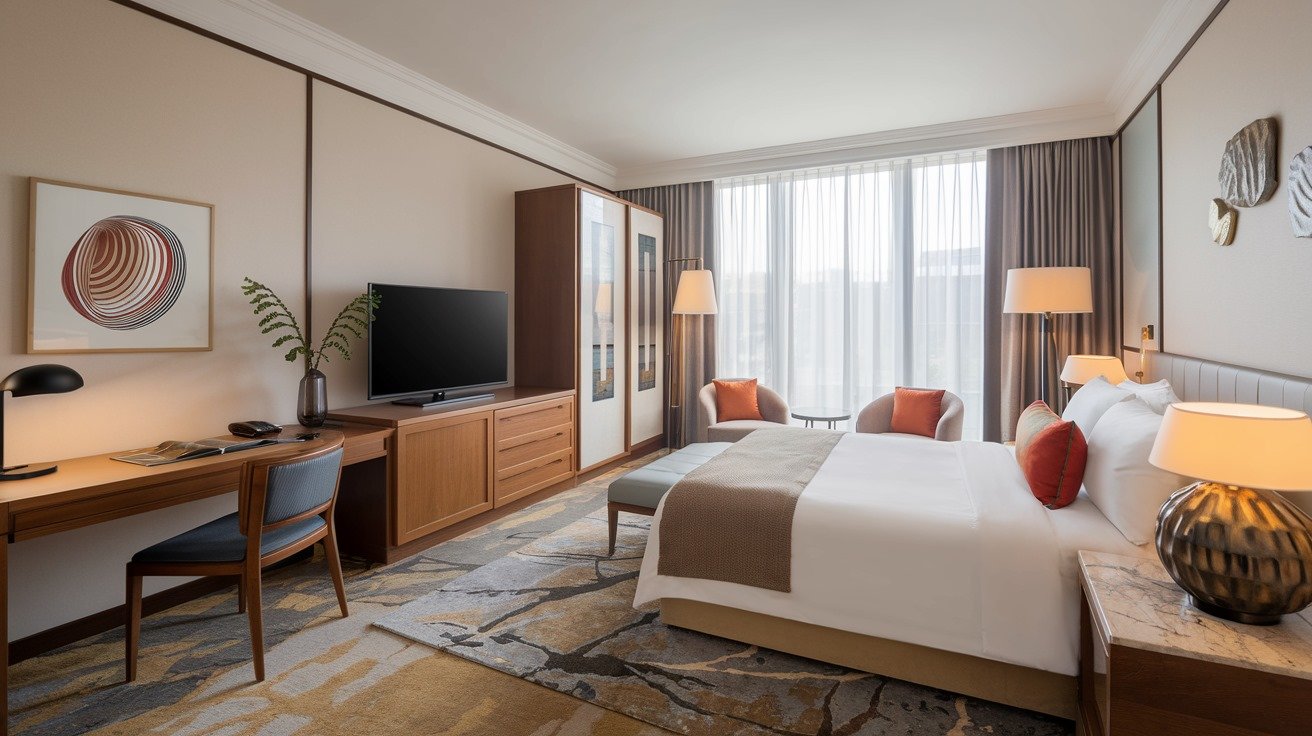Introduction
For a business in the context of the ‘hospitality industry,’ one of the most turbulent industries, there are still primary objectives – effective operation and guest satisfaction. What enables hoteliers to accomplish these objectives is known as OPERA Software; it is a Universal Property Management System that operates in hotels around the globe. Within the functionalities of OPERA Software lies the concept of room types, each assigned a specific code or identifier to streamline operations. Among these, room type SK1B holds particular significance. This article explores the meaning of room type SK1B in OPERA Software, its role in hospitality management, and how it impacts operations and guest experiences.
What Does Room Type SK1B Mean in OPERA Software?
In OPERA Software, room types are uniquely identified codes that help categorize a hotel’s room inventory. These identifiers, such as room type SK1B, are tailored to meet the specific needs of a property. While the exact meaning of SK1B can vary based on the property’s internal coding system, it often provides detailed information about a room’s characteristics.
Breaking down room type SK1B in OPERA Software typically reveals key attributes:
- S might denote a “Single” or a “Standard” classification.
- K often refers to a king-sized bed, indicating the type of bed provided.
- 1B could signify a one-bedroom setup or additional features like a balcony or suite.
These components combine to give a clear picture of what the room has to offer in a very simple manner. For instance, a property may provide room type SK1B to mean a large number of space amenities, including a king-sized bed and a personal balcony in a room, especially for couples or single guests who want to experience luxury.
Room Type SK1B: Core Functions in OPERA Software
The concept of room type SK1B in OPERA Software extends beyond mere categorization. They are mostly used for inventory control, revenue generation, and customer satisfaction in every hospitality business. Room types are key to the workings of OPERA Software because they allow hoteliers to organize the rooms effectively.
Imagine a busy hotel during peak season. Customers will make certain requirements that may include a bed and bathroom size, and a view of the outside world. The existence of room type SK1B enables the system to associate it with proper holdings to meet the user’s need for a room. By linking room features directly to the coding system, OPERA Software minimizes errors and enhances operational precision.

Customizing Room Type SK1B
One of the standout features of OPERA Software is its flexibility, allowing properties to customize room types like SK1B to reflect their unique offerings. Customization is crucial because no two properties are identical, and each hotel has its specific attributes and target market. It could be a one-bedroom beachfront SK1B as a bedroom with a king-size bed, ocean-side view, and direct access to the beach. On the other hand, one hotel located in a city may give the same code as a standard king room that comes with contemporary furniture and a city view. This adaptability ensures that room type SK1B is not a generic label but a precise identifier tailored to the property’s brand and guest expectations.
Operational Benefits of Room Type SK1B
Defining and utilizing room type SK1B in OPERA Software offers a range of operational benefits. These benefits impact various aspects of hotel management, from reservations to housekeeping, and ultimately influence guest satisfaction.
First, room type SK1B simplifies the reservation process. When guests or travel agents make bookings, the OPERA system uses room type codes to identify available inventory that matches their preferences. This streamlined process reduces the likelihood of double bookings and ensures that guests receive the accommodations they expect.
Second, room type SK1B plays a vital role in revenue management. By categorizing rooms based on attributes such as size, bed type, and view, hotels can implement dynamic pricing strategies. For instance, during peak travel seasons, the rates for room type SK1B might increase due to higher demand for premium accommodations. Conversely, during off-peak periods, promotional offers can be tied to this room type to attract more bookings.
Additionally, housekeeping operations benefit from the precise categorization provided by room type SK1B. Housekeeping staff can plan their tasks more efficiently, knowing the specific requirements of each room type. For example, a room coded as SK1B may require additional attention to its balcony or specialized cleaning for its furnishings. This clarity reduces turnaround times and ensures rooms are ready promptly for new guests.

Enhancing Guest Experiences with Room Type SK1B
The meticulous categorization of rooms, such as room type SK1B in OPERA Software, directly contributes to improved guest experiences. Guests often have specific expectations when booking accommodations, and accurate room type descriptions ensure these expectations are met.
Consider a business traveler visiting a city for an important conference. They may prioritize features like a king-sized bed for comfort, a workspace for productivity, and high-speed internet. If room type SK1B includes these features, the guest can book with confidence, knowing their needs will be met.
Moreover, clear room type definitions enhance transparency in the booking process. Guests can view detailed descriptions and images of room type SK1B during their online reservations, helping them make informed decisions. This transparency fosters trust between the guest and the property, increasing the likelihood of repeat bookings and positive reviews.
Preparing of HotelStaff on Room Type SK1B in OPERA Software
It is essential to train staff effectively. Front desk agents, reservation managers, and revenue teams all need a thorough understanding of how room types function within the system.
Training should focus on key aspects such as identifying the attributes of room type SK1B, using the system to match guest preferences, and leveraging room types for upselling opportunities. For instance, if a guest inquires about an upgrade, staff can confidently recommend room type SK1B by highlighting its premium features, such as a king bed and balcony.
Proper training ensures that staff can navigate the system efficiently, minimizing errors and enhancing the guest experience. This level of expertise is critical for properties aiming to provide seamless service and maintain a competitive edge.
Challenges and Solutions
While the use of room type SK1B in OPERA Software offers numerous advantages, it is not without challenges. One common issue is inconsistent coding, where room type definitions vary across departments or are poorly documented. This inconsistency can lead to confusion among staff and dissatisfaction among guests.
To address this, hotels should establish a standardized coding system during the initial setup of OPERA Software. Regular audits and updates to the room type database ensure that codes like SK1B remain accurate and aligned with the property’s offerings.
Another challenge is staff unfamiliarity with room types and their attributes. Comprehensive training programs, along with detailed documentation, can bridge this knowledge gap. By investing in staff education, hotels can ensure that room type SK1B and similar classifications are utilized to their full potential.

Implications
As the hospitality industry evolves, so too will the role of room types in property management systems. Innovations in technology, such as artificial intelligence and machine learning, are expected to enhance the capabilities of OPERA Software.
For example, future updates may enable the system to provide real-time analytics on the performance of room types like SK1B, helping hotels optimize pricing strategies and improve guest satisfaction. Additionally, integration with mobile apps and smart room technologies could make it even easier for guests to customize their stays based on room type preferences.
Room type SK1B will continue to be a crucial component of OPERA Software, driving operational efficiency and ensuring that hotels meet the ever-changing needs of their guests.
Conclusion
The meaning and significance of room type SK1B in OPERA Software extend far beyond a simple code. It represents a meticulously defined category that enables hotels to manage inventory, enhance guest experiences, and optimize revenue. From customizing room features to training staff and addressing challenges, room type SK1B plays an integral role in the success of modern hospitality operations.
This paper aims to awaken hoteliers and hospitality professionals to the potential that room type SK1B holds for them in OPERA Software. In doing so, they can also minimize their risks in the future and guarantee that their properties stay relevant, smooth-running, and guest-oriented in a rather volatile sector.


